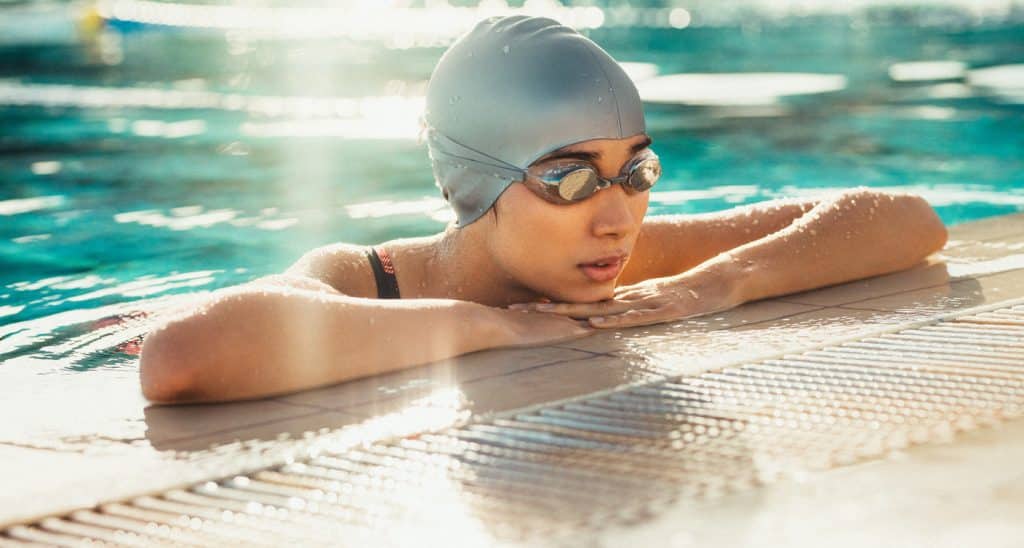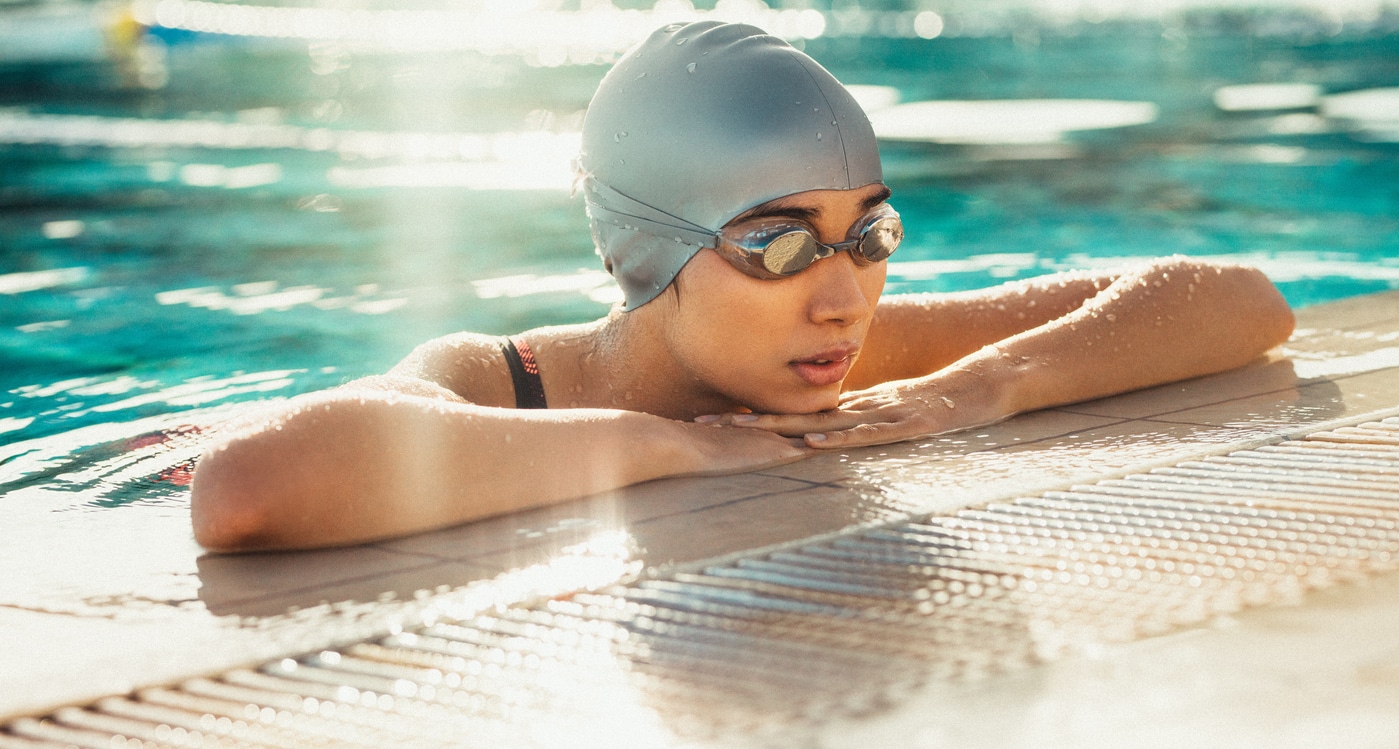If you’re like me, you’ve probably wondered why swimming makes you more tired than running. After all, when you’re running, you’re carrying your entire body weight with each step. But in the water, you’re buoyant and fully supported. So why does it feel like such a workout?
Swimming and running compared

Similarities
Both swimming and running are excellent cardio workouts that can help to improve heart health, lung capacity, and overall fitness levels. They are both relatively easy to do and don’t require any special equipment or training. And finally, both swimming and running can be done indoors or outdoors.
Differences
While swimming and running share some similarities, there are also some important differences to keep in mind. For one thing, swimming is a whole-body workout while running primarily works the lower body.
Additionally, swimming is a great option if you’re looking for a low-impact workout because the water provides resistance without putting too much stress on your body.
Running is a weight-bearing exercise, which means it puts stress on the joints—this can lead to joint pain for some people.
Another key difference between swimming and running is that swimming provides resistance thanks to the density of water. This resistance helps tone muscles and build strength—something that running doesn’t do as effectively.
Also, while both activities can be done outdoors, you need access to a pool if you want to swim laps—not everyone has this type of access.
Finally, while swimming can be done year-round, running is a seasonal activity since you need good weather to do it outdoors.
Calories burned swimming and running
It may surprise you to know that a 180lb person running at 10 minute mile pace will burn 420 calories in 30 minutes, whereas that same person would only burn around 227 calories doing breastroke in the pool, or 249 calories performing front crawl for 30 minutes.
So, why does swimming make you more tired than running?
Given that more calories are burned running than swimming, why is it that most of us find that swimming makes us more tired than running?
Running is a more natural movement for humans
The main reason for this difference in how we perceive the two activities is that running is a more natural movement for humans than swimming. When we run, we are using muscles that we use all the time in our everyday lives, such as our quadriceps, hamstrings and calf muscles.
Swimming, on the other hand, is a skill that we have to learn. It requires the use of muscles that we don’t normally use on a daily basis, such as our latissimus dorsi (back muscles) and pectoralis major (chest muscles).
This difference in muscle usage means that running is generally less tiring than swimming because our bodies are more accustomed to the movement.
More muscles used in swimming than running
Another reason why swimming can be more tiring than running is that, while both activities use a lot of muscles, swimming actually uses more muscles than running. When we swim, we are using our arms, legs, core and back all at the same time, meaning we actually use all major muscle groups swimming.
In contrast, when we run, our arms move but our legs do the majority of the work. This difference in muscle usage means that swimming is a more demanding workout than running and, as a result, can be more tiring.
Shorter breaths in swimming than running
Another factor that can play a role in how tired we feel after swimming or running is our breathing. When we swim, we take shorter breaths than when we run because we need to be careful not to inhale water.
This means that our bodies don’t get as much oxygen when we swim as when we run. And since oxygen is essential for our cells to produce energy, this lack of oxygen can lead to us feeling more tired after swimming than after running.
Body working to keep warm in the pool / lake / sea
Temperature can contribute to feeling more tired after swimming than after running. When we are in the pool or swimming outside, we are generally swimming in cold water. This means we have to work hard just to maintain our body temperature. The colder the water temperature, the more our bodies have to work to maintain blood flow and regulate the body’s core temperature.
When we run, our bodies generate heat and this helps to keep us warm. But when we swim, our bodies actually lose heat and this can make us feel more tired.
Swimming is a mental workout
Another reason why swimming can be more tiring than running is because it requires more focus and concentration. When you’re running, you can zone out and let your mind wander, but when you’re swimming, you have to constantly be aware of your breathing and avoiding any other people or obstacles in the pool or lake. You also have to tumble turn or ‘u-turn’ at the end of every lap in the pool.
This mental workout can be tiring, especially if you’re swimming laps for a long period of time.
The type of training matters
Finally, it’s important to remember that the type of training you do will also affect how tired you feel after your workout. If you do a lot of sprints when you’re running, you’re likely to feel more tired than if you go for a long, slow run.
The same is true for swimming. If you do a lot of sprints or swim with resistance training, you will probably find that swimming makes you more tired than running.
Read also: Why does going to the pool make you tired?
Conclusion: Is it true that swimming makes you more tired than running?
So there you have it, post swimming fatigue really is a thing, and swim workouts can definitely make you more tired than running! That’s not to say you should give up on swimming though. Swimming is a great full body workout which gives you aerobic exercise and muscle toning all at the same time. So, take a trip to your local pool and work out your entire body.
